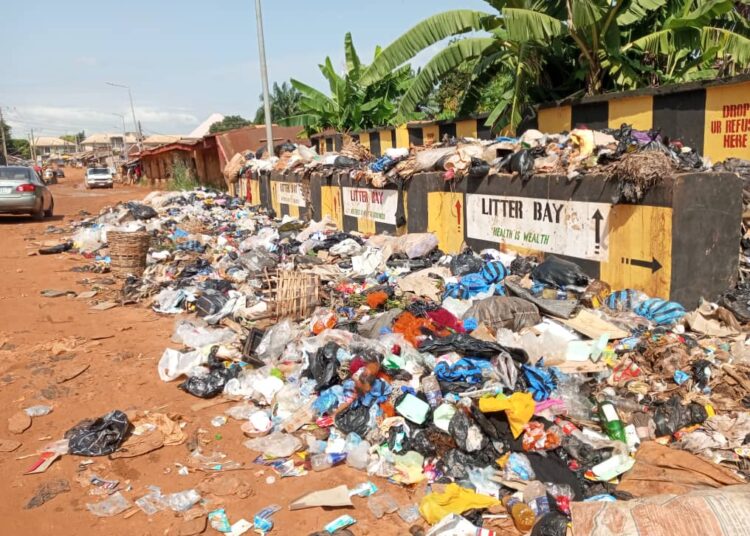To curb Nigeria’s growing toxic waste crisis, the federal government has launched a new initiative to strengthen the country’s capacity for sound chemicals and waste management.
The special project, spearheaded by the National Environmental Standards and Regulations Enforcement Agency (NESREA) in collaboration with the United Nations Environment Programme (UNEP), formally kicked off yesterday at an inception workshop in Abuja.
The director general and chief executive officer of NESREA, Dr Innocent Barikor, described the project as a “national imperative,” stressing that Nigeria’s rapid industrialisation is fueling escalating risks from improper chemical handling and waste disposal.
“From hazardous industrial effluents to electronic waste and expired chemicals, the threats to our environment, public health, and socio-economic stability are undeniable,” Dr Barikor warned in his keynote address.
The UNEP-backed initiative, titled “Strengthening National Infrastructural and Human Capacity for Sound Chemicals and Waste Management in Nigeria,” aims to revamp the country’s regulatory frameworks, improve infrastructure for waste monitoring and disposal, and equip key institutions and personnel with the tools to enforce international best practices.
Barikor revealed that the project aligns with several global treaties and frameworks, including the Basel, Rotterdam, and Stockholm Conventions, the Minamata Convention on Mercury, and the newly adopted Global Framework for the Sound Management of Chemicals.
He emphasised that the programme is designed to be inclusive, with gender mainstreaming and social equity embedded in its implementation.
“This is not merely a response to existing challenges; it is a proactive step toward building a resilient system that safeguards our people, ecosystems, and future generations,” Barikor said, urging stakeholders from government, industry, civil society, and international organisations to contribute their expertise.
During the workshop, participants reviewed Nigeria’s current chemicals and waste management policies, proposed legislative reforms, designed training modules, and crafted scalable infrastructure plans to handle the country’s growing waste burden.
Barikor challenged technical experts and stakeholders present to “think boldly, collaborate openly, and prioritise sustainability in every recommendation,” asserting that the project’s success depends on collective commitment and innovation.
UNEP representatives at the event expressed confidence in Nigeria’s renewed determination to strengthen its environmental governance and assured of continued international support.
The workshop follows a Project Steering Committee meeting on Tuesday, laying the groundwork for governance and oversight. The two-day engagement marks the beginning of an ambitious journey to transform Nigeria’s hazardous waste landscape into a model of environmental responsibility.
Environmental experts and advocacy groups have long raised concerns about the country’s growing exposure to hazardous waste, citing poor regulation, lack of awareness, and weak enforcement as major obstacles.
If successfully implemented, the project could significantly change that narrative, positioning Nigeria as a regional leader in chemicals and waste governance.











